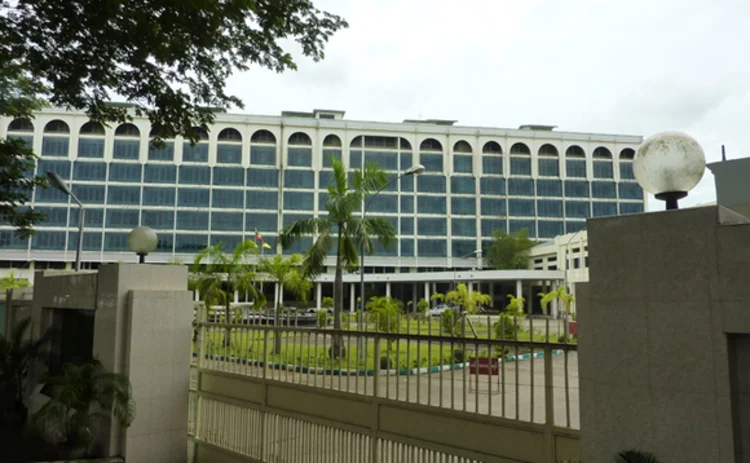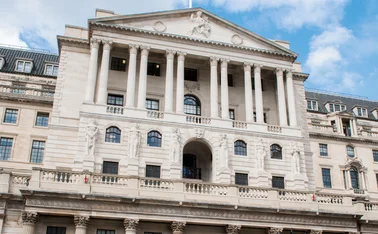
Myanmar central bank opens up more room for foreign banks
Seven foreign banks received a long-awaited approval to provide trade finance to local exporters

The Central Bank of Myanmar recently permitted seven foreign banks to provide trade financing to local exporters, in a move intended to widen the limited business opportunities for foreign banks in the country.
Applications from five other foreign banks are still pending approval, local media reports, adding that all the foreign banks are expected to provide trade financing within this year.
The initiative, which was announced by the CBM in December 2017, allows foreign bank branches to provide “export financing and related banking services for export financing to local exporters”, in addition to their wholesale business in Myanmar.
Foreign banks who are interested in this area of business will need to report to the CBM and obtain approval accordingly.
The move is expected to enhance the business environment for foreign banks and to facilitate the trading industry in the country, as local exporters can now choose between local banks and foreign banks when seeking trade finance services.
Closed system
The scope of business for foreign banks in Myanmar remains highly restrictive. In 2015 and 2016, 13 foreign bank branches were awarded licences to provide wholesale banking services, including lending, cash management, treasury and trade finance products to foreign companies, joint ventures and domestic banks.
These foreign lenders can also lend money to local corporates, but only under a partnership with domestic banks.
But foreign banks are prohibited from performing retail operations, including deposit taking, local money transfers and direct lending in the local currency, kyats, directly to Myanmar citizens. Each approved foreign bank can only set up one branch in Myanmar, with a capital requirement of $75 million.
The CBM sees benefits in easing the restrictions. “Foreign bank operations are expected to promote greater use of technology, encourage international standard practices in the banking industry and achieve greater access to international markets,” CBM governor Kyaw Kyaw Maung said in October 2017.
Apart from the 13 foreign banks, Myanmar is home to four state-owned banks and 24 private banks, according to central bank data from 2015.
Trade finance in Myanmar
Trade finance is a relatively new kind of banking service for Myanmar banks, which they started offering only in 2015 when the Asian Development Bank expanded its trade finance programme (TFP) into the country.
Under the TFP, the ADB guarantees trade finance instruments, such as letters of credit, issued by local partner banks in Myanmar. The ADB also provides credit facilities and technical assistance to partner banks. The programme aims to strengthen the capacity of local banks to provide trade finance services to the country’s importers and exporters.
Currently, there are four Myanmar banks in the TFP. CB Bank, the first to join the TFP, receives up to $12 million per annum from the ADB for its trade finance operations, such as advance payment for export, letters of credit, and inward remittances.
In 2016–17, total foreign trade in Myanmar amounted to $29.16 billion, 5.2% up from previous year. Yet, domestic exports decreased by 4% over the same period, and general imports increased by 0.6%, creating a trade deficit of $5.26 billion, according to the official statistical organisation in Myanmar.
Only users who have a paid subscription or are part of a corporate subscription are able to print or copy content.
To access these options, along with all other subscription benefits, please contact info@centralbanking.com or view our subscription options here: http://subscriptions.centralbanking.com/subscribe
You are currently unable to print this content. Please contact info@centralbanking.com to find out more.
You are currently unable to copy this content. Please contact info@centralbanking.com to find out more.
Copyright Infopro Digital Limited. All rights reserved.
You may share this content using our article tools. Printing this content is for the sole use of the Authorised User (named subscriber), as outlined in our terms and conditions - https://www.infopro-insight.com/terms-conditions/insight-subscriptions/
If you would like to purchase additional rights please email info@centralbanking.com
Copyright Infopro Digital Limited. All rights reserved.
You may share this content using our article tools. Copying this content is for the sole use of the Authorised User (named subscriber), as outlined in our terms and conditions - https://www.infopro-insight.com/terms-conditions/insight-subscriptions/
If you would like to purchase additional rights please email info@centralbanking.com
Most read
- Trends in reserve management 2024: survey results
- People: RBI appoints senior officials
- China to start selling ultra-long term sovereign bonds







